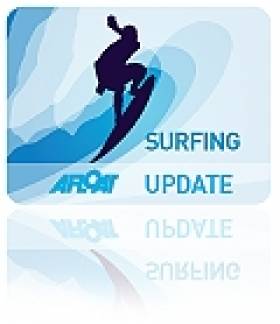Displaying items by tag: Martin Cullinane
Beginners Welcome at Tramore Seaside Festival
Learner surfers were more than welcome at the fourth annual seaside festival in Tramore, Co Waterford last weekend.
The Irish Independent reports that Tramore beach is popular with surfing novices who want to develop their skills before tackling the bigger waves on the west coast.
And the hundreds who turned out to give surfing a try are surely a testament to that.
"We're very accessible with the new road, it's a fantastic place to learn," said surf school instructor Martin Cullinane.
Tramore is the "best place in the country to learn" according to festival organiser Linda Tuohy.
The weekend also featured a number of events recognising the Waterford town's relationship with the coastal environment.
























































